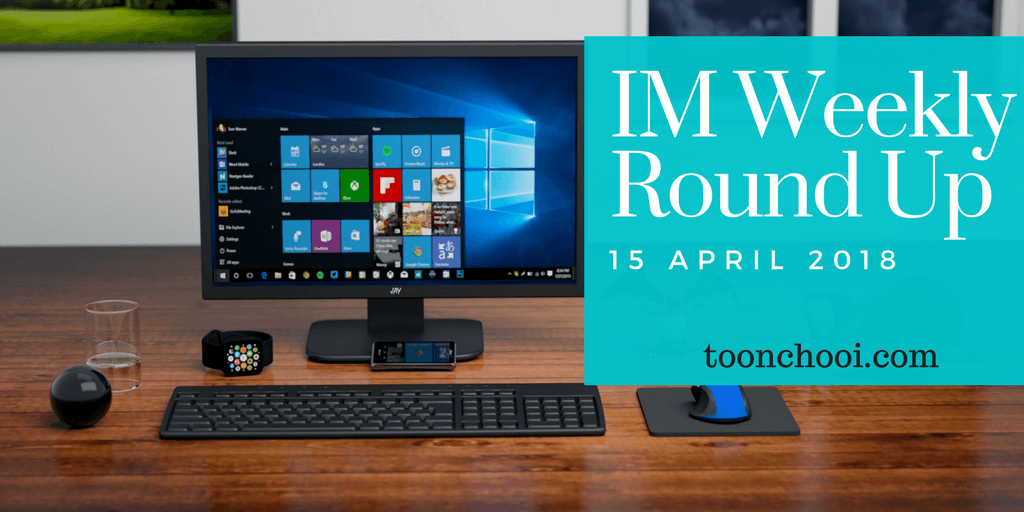1. Introduction
Hey there, digital marketers! Welcome to our comprehensive guide on harnessing the power of Artificial Intelligence (AI) in email marketing. In this guide, we'll walk you through everything you need to know about AI, its benefits, and how you can implement it to supercharge your email marketing strategy. Get ready to take your email game to the next level!
2. Understanding AI in Email Marketing
Before we dive into the exciting world of AI in email marketing, let's first understand what AI and Machine Learning are all about. AI refers to the use of intelligent machines to perform tasks that typically require human intelligence. In the context of email marketing, AI can analyze data, learn from it, and make informed decisions to enhance your campaigns.
2.1 Understanding AI and Machine Learning
AI can be divided into two categories: rule-based AI and machine learning AI. Rule-based AI operates based on pre-set rules, while machine learning AI goes a step further by using algorithms to learn from data and improve decision-making. Machine learning AI offers more advanced capabilities and yields better results for your email marketing endeavors.
2.2 Benefits of AI in Email Marketing
The benefits of using AI in email marketing are astounding. Here are just a few of them:
- Improved email personalization: Personalization is the key to success in email marketing. With AI, you can analyze subscriber data and create personalized content that resonates with each individual. This personal touch leads to higher open rates, click-through rates, and conversions.
- Enhanced email segmentation: AI can analyze subscriber data to create accurate and refined email segments. This allows you to send targeted emails to specific groups of subscribers, increasing engagement and relevance.
- Automated email campaigns: AI enables the automation of email campaigns based on subscriber behavior. Imagine having a virtual assistant that sends the right email at the perfect time, saving you time and effort while maximizing the impact of your campaigns.
- Optimized email content: AI can generate subject lines and email content based on subscriber data, resulting in more compelling and engaging emails. It's like having a brilliant copywriter by your side, crafting captivating messages that grab attention.
- Enhanced analytics and insights: AI can analyze campaign data, providing valuable insights into subscriber behavior and campaign performance. This data-driven approach helps you make informed decisions to continuously improve your email marketing strategy.
Now that we have a solid understanding of AI in email marketing, let's explore how you can implement it in your strategy to achieve remarkable results.
3. Implementing AI in Your Email Marketing Strategy
Implementing AI in your email marketing strategy requires careful planning and the right tools. Here's how you can get started:
3.1 Choosing the Right AI-Powered Email Marketing Tools
The first step is to choose the right AI-powered email marketing tools that align with your goals. There are numerous options available in the market, each offering unique features and capabilities. Look for tools that provide robust AI capabilities, seamless integration with your existing email marketing platform, and user-friendly interfaces. Do your research, read reviews, and select a tool that suits your specific needs.
3.2 Best Practices for Implementing AI in Email Marketing
To ensure successful implementation, consider the following best practices:
- Start with a clear objective: Identify your specific goals and how AI can help you achieve them. Whether it's improving personalization, enhancing segmentation, or streamlining automation, having a clear objective will guide your implementation process.
- Data quality and privacy: Data is the fuel that powers AI. Ensure that you have high-quality, accurate, and relevant data to drive effective AI-powered email campaigns. Additionally, prioritize data privacy and adhere to relevant regulations to maintain trust with your subscribers.
- Test and iterate: Implementing AI is an ongoing process. Continuously test and iterate your campaigns to optimize results. Monitor key metrics, experiment with different strategies, and adapt based on insights gained through AI-powered analytics.
3.3 How to Incorporate AI into Your Email Marketing Strategy
Now that you've selected the right tools and established best practices, it's time to incorporate AI into your email marketing strategy. Consider the following steps:
- Set up data collection: Collect relevant data from your subscribers, including preferences, behavior, and purchase history. This data will serve as the foundation for AI-powered personalization and segmentation.
- Segment your audience: Utilize AI to analyze subscriber data and create segments based on common characteristics or behaviors. This allows you to tailor your emails to specific groups, delivering highly targeted content.
- Craft personalized content: Leverage AI to create personalized content for each subscriber. From product recommendations to special offers, AI can help you deliver customized messages that resonate with your audience.
- Automate your campaigns: Implement AI-powered automation to trigger emails based on specific actions or time intervals. This ensures timely and relevant communication with your subscribers, leading to improved engagement and conversions.
4. Personalization and Segmentation with AI
In the world of email marketing, personalization is the secret sauce that makes your campaigns stand out. AI offers powerful tools to enhance personalization and segmentation.
4.1 AI-Powered Personalization in Email Marketing
With AI, you can go beyond basic personalization by analyzing subscriber data and tailoring your emails accordingly. Imagine sending emails that address each subscriber by name, recommend products based on their preferences, or acknowledge their recent interactions with your brand. AI makes it possible to create a unique and personal experience for each individual.
4.2 AI-Powered Segmentation and Targeting
Segmentation is crucial for delivering relevant content to your subscribers. AI can analyze vast amounts of data to create accurate and refined segments. Instead of manually segmenting your audience, AI algorithms can identify patterns, preferences, and behaviors, allowing you to send targeted emails that resonate with specific groups. This level of precision enhances engagement and increases the likelihood of conversions.
5. Optimizing Email Content with AI
Engaging and captivating email content is vital for grabbing your subscribers' attention. AI can play a significant role in optimizing your email content for maximum impact.
5.1 Using AI for Email Subject Line Optimization
The subject line is your first opportunity to entice subscribers to open your email. AI can analyze data, identify patterns, and generate subject lines that are likely to grab attention and increase open rates. Gone are the days of endlessly brainstorming subject lines; let AI do the heavy lifting for you.
5.2 AI-Powered Email Content Creation
Creating compelling email content is an art, and AI can be your creative collaborator. By analyzing subscriber data, AI can generate personalized content tailored to the interests and preferences of each individual. Whether it's suggesting relevant blog posts, showcasing personalized product recommendations, or sharing exclusive offers, AI can help you craft emails that resonate with your subscribers.
5.3 AI-Generated Subject Lines and Content
AI-generated subject lines and content can be a game-changer for your email campaigns. By leveraging machine learning algorithms, AI can analyze successful subject lines and content patterns, allowing you to generate variants that have a higher probability of resonating with your audience. With AI on your side, you can craft emails that are not only visually appealing but also emotionally captivating.
6. Automation and Efficiency with AI
Automating your email campaigns is a time-saving and efficiency-boosting strategy, and AI is the perfect ally to achieve this.
6.1 Automated Email Campaigns with AI
AI-powered automation allows you to set up triggers and workflows that automatically send emails based on specific subscriber actions or time intervals. From welcome emails to cart abandonment reminders, AI can ensure timely communication without manual intervention. This frees up your time to focus on other strategic aspects of your marketing efforts.
6.2 AI-Powered Email Automation
AI-powered email automation goes beyond basic triggers. With machine learning capabilities, AI can analyze subscriber behavior, predict preferences, and deliver highly relevant emails. It's like having a virtual assistant that understands your subscribers' needs and sends the right email at the perfect moment, leading to increased engagement and conversions.
7. Measuring Success with AI
Measuring the success of your email marketing campaigns is crucial to understanding what's working and what needs improvement. AI-powered analytics can provide valuable insights to optimize your strategy.
7.1 Measuring the Success of Your AI-Powered Email Marketing Campaigns
AI can analyze a wealth of data to evaluate the performance of your email marketing campaigns. From open rates and click-through rates to conversions and revenue generated, AI-powered analytics offer a comprehensive view of your campaign's success. This data-driven approach allows you to make data-backed decisions and continuously refine your strategy.
7.2 AI-Powered Email Analytics and Optimization
AI goes beyond basic analytics by providing predictive capabilities. By analyzing subscriber behavior and campaign data, AI can identify trends, anticipate customer needs, and suggest optimizations. This enables you to proactively optimize your email marketing strategy for better results and engagement.
8. Case Studies on Successful AI-Powered Email Marketing Campaigns
To understand the real-world impact of AI in email marketing, let's dive into a few inspiring case studies:
Harley-Davidson: Harley-Davidson used AI to create personalized email content for each subscriber. The campaign resulted in a 2,930% increase in email revenue.
Starbucks: Starbucks used AI to create personalized email content and subject lines. The campaign resulted in a 150% increase in click-through rates.
Spotify: Spotify used AI to create personalized email content and subject lines. The campaign resulted in a 30% increase in click-through rates.
These case studies showcase the immense potential of AI in email marketing and the tangible impact it can have on your business.
9. Choosing the Right AI-Powered Email Marketing Tools
Choosing the right AI-powered email marketing tools is crucial for a successful implementation. Here are some popular options to consider:
HubSpot: HubSpot offers an AI-powered content assistant that helps you plan, create, and share engaging content quickly, supporting your email marketing efforts. It provides features like content optimization and automation, enabling you to create remarkable content easily.
SendGrid: SendGrid is an AI-powered email delivery platform that assists in maximizing inbox delivery and ensuring email privacy.
Twilio SendGrid: Twilio SendGrid utilizes AI to enable marketers to create more personalized content for subscribers. It helps understand the type of email to send, to whom, when, and how often, allowing for better targeting and segmentation.
Elastic Email: Elastic Email offers free AI marketing tools for email creation. These tools can help boost your email marketing efforts and make your work easier. Their AI-powered features assist in creating engaging and effective email content.
ActiveCampaign: ActiveCampaign is an AI-powered marketing automation platform that assists in validating emails, cleaning up contact lists, and maintaining mailing list hygiene for improved email deliverability.
QuickMail: QuickMail offers AI email writing software designed to automate your sales workflow without compromising deliverability or reply rates. It can assist in composing effective and personalized email content, saving you time and effort.
Remember to evaluate your specific requirements, read reviews, and choose a tool that aligns with your business goals and budget.
10. Potential Drawbacks and Misconceptions of AI in Email Marketing
While AI in email marketing brings numerous benefits, it's essential to be aware of potential drawbacks and debunk common misconceptions.
10.1 Potential Drawbacks of Using AI in Email Marketing
- Data privacy concerns: AI relies on data to deliver personalized experiences, which raises concerns about data privacy and security. Ensure that you comply with relevant regulations and prioritize data protection.
- Dependency on data quality: AI is only as good as the data it receives. If your data is inaccurate or incomplete, it can negatively impact the effectiveness of AI-powered email marketing campaigns. Maintaining data quality should be a priority.
10.2 Common Misconceptions about AI in Email Marketing
- AI replaces human creativity: AI enhances human creativity, but it doesn't replace it. While AI can generate content and subject lines, human input and creativity are still vital for crafting compelling and authentic emails.
- AI is a magic solution: AI is a powerful tool, but it's not a magic solution that guarantees success. It requires strategic planning, monitoring, and optimization to achieve the desired results.
11. The Future of AI in Email Marketing
The future of AI in email marketing is promising. As AI technology continues to advance, we can expect even more sophisticated personalization, automation, and analytics capabilities. AI will become an integral part of every marketer's toolkit, enabling them to deliver hyper-personalized experiences and drive exceptional results.
Conclusion
Congratulations! You've reached the end of our comprehensive guide on AI in email marketing. We've explored the benefits of AI, how to implement it in your strategy, and its impact on personalization, content optimization, automation, and success measurement. Remember to choose the right AI-powered email marketing tools, be aware of potential drawbacks and misconceptions, and keep an eye on the exciting future of AI in email marketing. Now it's time to put your newfound knowledge into action and unleash the power of AI to create remarkable email marketing campaigns. Happy emailing!





